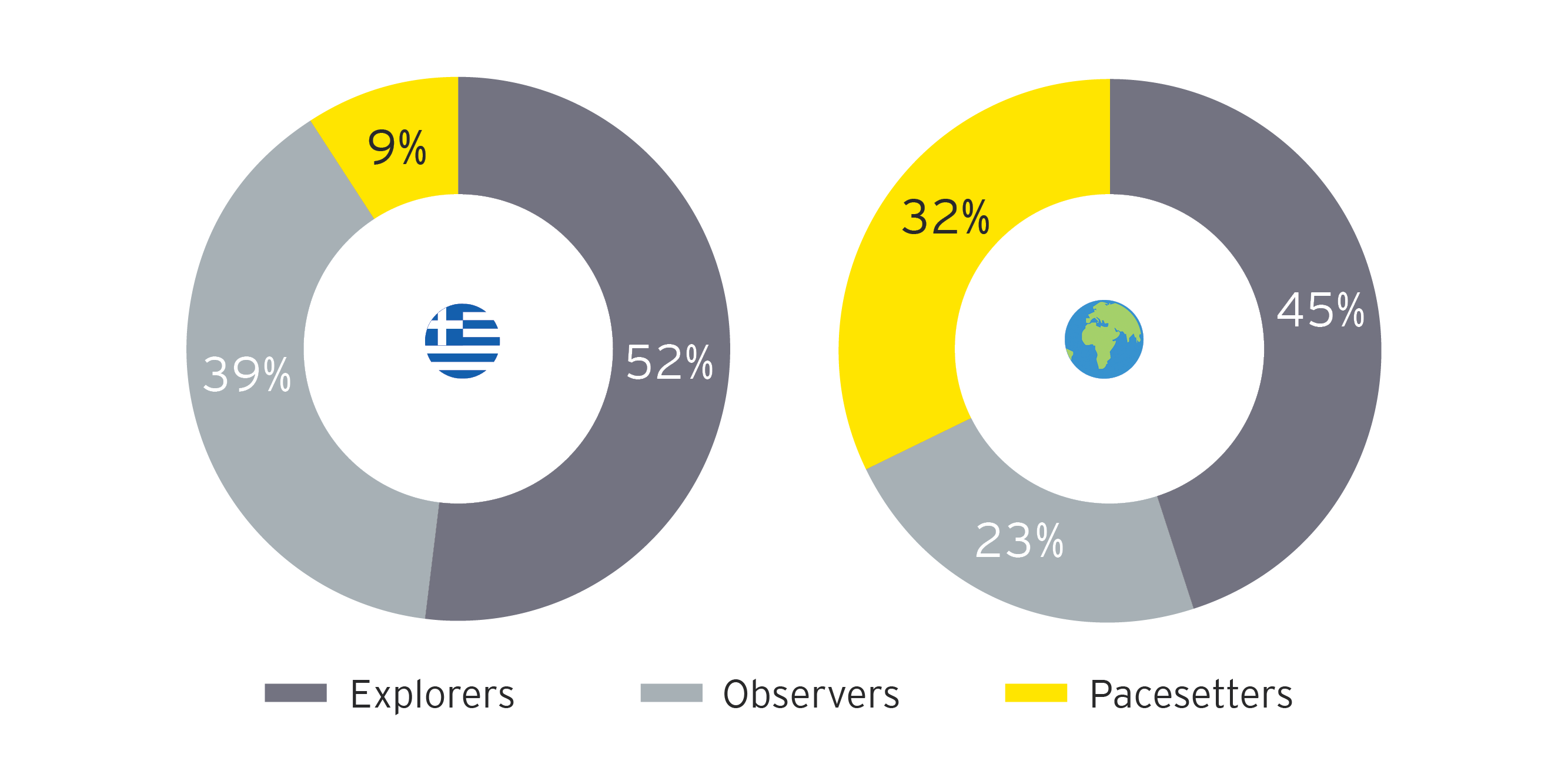A Value-Led Sustainability approach is driving financial impacts
45% of respondents have captured higher than expected financial value as a result of their climate change actions. A holistic approach to sustainability that takes into account financial benefits, as well as benefits for employees and customers, tends to deliver more value to the planet.
The further companies go, the better their returns
Most companies are still in the early stages of turning public commitments into action, with most progress being made on measurement and governance.
Companies leading on action take a broader approach. They are more likely to report significantly higher financial value than expected and have a larger reduction in emissions to-date.
According to their progress on climate change actions, companies are segmented into three groups:
The study measured the performance of the companies on climate change actions and based on this performance, classified them into three groups.
Pacesetters have completed most actions to address climate change, explorers are at an intermediate stage of completing actions and form the largest group, while observers will have to intensify their efforts to reach the desired outcome in the future.
The findings indicate that, when compared to the global sample, Greek businesses have significant room for improvement. At international level, 32% of the surveyed companies are categorized as ''pacesetters'' while only 9% fall within this category in Greece. Similarly, in our country, 52% of companies are categorized as ''explorers'' (compared to 45% globally), while 39% as ''observers'' (compared to 23% in the global sample). The findings indicate the importance of focusing on both explorers and observers in our country, aiming to enhance their efforts and improve their performance on climate actions.




